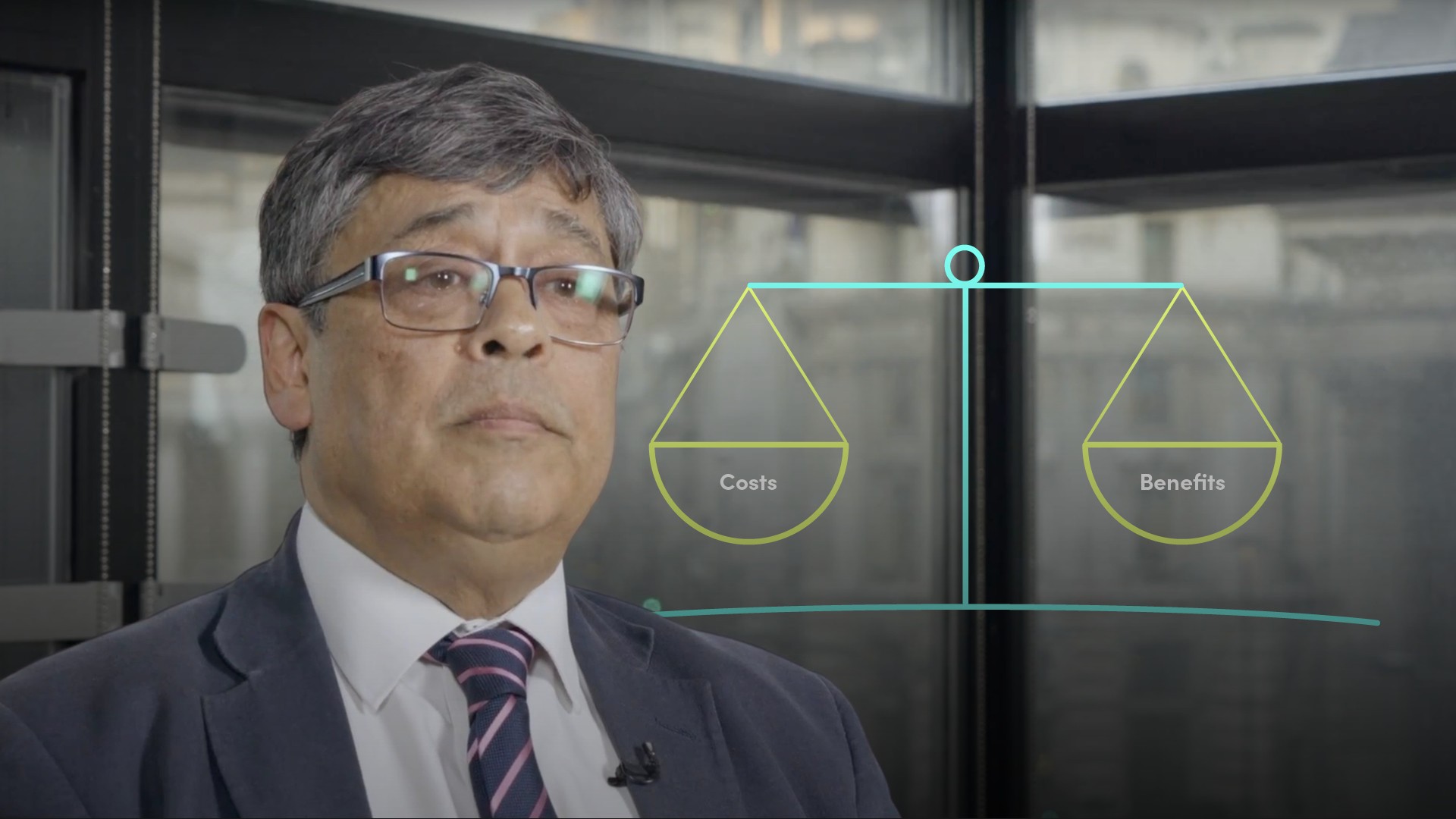
What is Economics?

Kent Matthews
35 years: Professor in economics & finance
Kent dives into how economics can be used to explain our choices and decision making processes, including how criminals utilise economics when deciding between risk and reward.
Kent dives into how economics can be used to explain our choices and decision making processes, including how criminals utilise economics when deciding between risk and reward.
Subscribe to watch
Access this and all of the content on our platform by signing up for a 7-day free trial.

What is Economics?
14 mins 34 secs
Key learning objectives:
Understanding the choices in economics
Explain the Cost/benefit analysis
Overview:
Economics can be accurately defined as a study of the choices people make. Each decision we make can be analysed through the lens of a cost/benefit analysis. This can be applied to choices such as marriage and crime.
Subscribe to watch
Access this and all of the content on our platform by signing up for a 7-day free trial.
What is Economics About?
Economists don’t know the price of everything but they do know something about value. Value is measured by what a person is willing to sacrifice to obtain something. In trying to measure this value, economists turn to a monetary yardstick and this is where price comes in.
What does it mean by ‘Economics is the Study of the Logic of Choice’?
Once we accept the notion that value is measured by what we are prepared to sacrifice for something, we realise that pretty much all decisions in human behaviour means that doing one thing means sacrificing not doing something else. People face income constraints, time constraints and may have physical constraints. My desires are boundless but my constraints stop me achieving all of them, so I have to make choices.
Choosing one thing over another means a balancing of benefits over costs. The benefit of choosing one thing is balanced by the cost of not doing something else. This then brings us to the more interesting definition. Economics can be defined more succinctly as the ‘the study of the logic of choice’.How can the Cost/Benefit Analysis be applied to Marriage and Divorce?
Economic studies show that women who leave the workforce on maternity leave invariably take a permanent hit on their future income path. The reason for the gap is due to childcare responsibilities falling disproportionately on women which reduces their work productivity, and also due to discrimination by employers against women with children. Choosing to have a child involves sacrifice measured in terms of the income foregone by interrupting a career path.
Regarding the decision to marry, one could look at it from the costs and benefits of remaining single, and the expected costs and benefits of entering a marriage partnership. Marriage allows the partnership to enjoy economies of scale – producing 2 meals is cheaper per unit than producing one, shared use is cheaper than separate use. Similarly, organisation in the home enables economies of scope which is that producing things jointly is cheaper than producing them separately. Other advantages arise from the division of labour, specialisation and the theory of comparative advantage.
With divorce, the choice becomes one of balancing the expected costs and benefits. If the expected benefits of marriage turn out to be much lower than the expected costs, individuals re-evaluate their original decision. Studies of divorce reveal that the income differential between husband and wife and family size are good predictors of divorce rates. The narrower the differential between husband and wife’s earnings, the higher the divorce rate. Similarly the larger the family size the lower the divorce rate.What are the Economics of Crime?
The expected benefits from criminal activity is the reward from the activity multiplied by the probability of not being apprehended by the authorities. The expected cost is the probability of being apprehended multiplied by the penalty associated with that crime. This translates into the familiar Risk-Return theory for the investor. The professional criminal like the professional investor will have a good idea of the risks and rewards so that their subjective probability will be close to the objective probability. The amateur could be in for a nasty shock if the subjective probability of being caught turns out to be lower than the objective probability. However, the decision to commit crime will depend not just on the expected net benefits but also the individual’s preference for risk and reward. A risk-averse person will need a high expected reward relative to risk, meaning a high expected net benefit from crime. A risk-neutral individual would ignore the risk and go for the maximum expected net benefit. While a risk-lover would get turned on by the risk and ignore the reward.
Subscribe to watch
Access this and all of the content on our platform by signing up for a 7-day free trial.

Kent Matthews
There are no available Videos from "Kent Matthews"



























